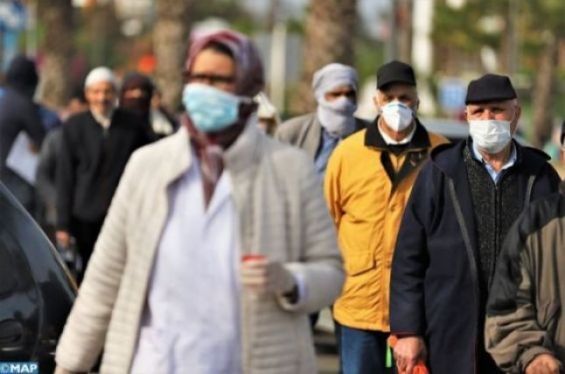During the current peculiar times, symptoms related to fall allergies can be confused with those of Covid-19. Similarities and differences between the two situations makes it hard and stressful for Moroccans, especially with the increasing number of daily infections in the Kingdom.
«Respiratory allergies are triggered by allergens, meaning that there is a factor causing these reactions. Most of the time, these triggers are in the patient's home, such as dust and dander, or pollen during spring and fall», Dr Mohamed Zizi, a Casablanca-based pneumo-allergist and cardiologist told Yabiladi.
Allergies vs. Covid-19
According to the physician, the clinical signs between allergies and the coronavirus remain different. «Often, when we have allergies, there is no fever involved. Respiratory allergies do not affect the general condition while for the coronavirus, there is often intense fatigue», he indicates.
«Allergies can affect the nose, it is called allergic rhinitis or hay fever and it is a type of inflammation in the nose which occurs when the immune system overreacts to allergens in the air. The eyes also have allergies (allergic conjunctivitis)», explained pulmonology and respiratory allergies professor Abdallah El Meziane.
«If you are someone who is already known to have these types of allergies, then you will be used to the symptoms. These symptoms may also occur when exposed to allergens and they can be controlled by treatment».
However, when allergies are untreated, they can «give a cough that can be confused with the coronavirus», Dr Mohamed Zizi warned.
Indeed, for viral infections in general, that is to say diseases caused by a virus spreading in the body, «patients may suffer from stiffness, headaches, fever, a dry or very irritated throat and sometimes tightness in the chest», Abdallah El Meziane said.
And unlike a person who is aware of their allergy and following a treatment, «the problem can occur when a person shows symptoms for the first time», said the doctor.
Things can get complicated with asthma
Can coronavirus worsen an allergy or asthma ? «The various statistics observed since the start of the pandemic indicate that there are few asthmatics, compared to people suffering from other pathologies, such as cardiovascular problems and diabetes», Professor Abdallah El Meziane said. «This does not mean that they are protected», he insisted.
Dr. Mohamed Zizi explains that «for people who have respiratory allergies without asthma, the coronavirus infection will not differ from that seen in other healthy patients». «The symptoms they will feel and the complications that they may suffer from will be the same», he added, without ruling out the fact that the coronavirus may prove to be a risk factor for this category of patients.
«For patients with asthma, the coronavirus risks worsening their state of health and may result in severe attacks. Since they suffer from respiratory failure due to their asthma, this can be exacerbated by the coronavirus».
For the medical practitioner, «only a doctor can differentiate between an asthma attack and the coronavirus». «We have additional examinations that we do, such as chest X-ray, functional respiratory explorations, biological analyzes and also the scanner which direct us either towards an exacerbation of asthma or to a case of Covid-19», he adds.
«Currently, we must first suspect a case of coronavirus, because SARS-CoV-2 circulates much more than other viruses. Thus, each time a person comes in with a chest tightness or difficulties breathing, it is necessary that they consult a doctor», insists his colleague Dr. Abdallah El Meziane who warned that any delay may further complicate the patient's condition.




 chargement...
chargement...












